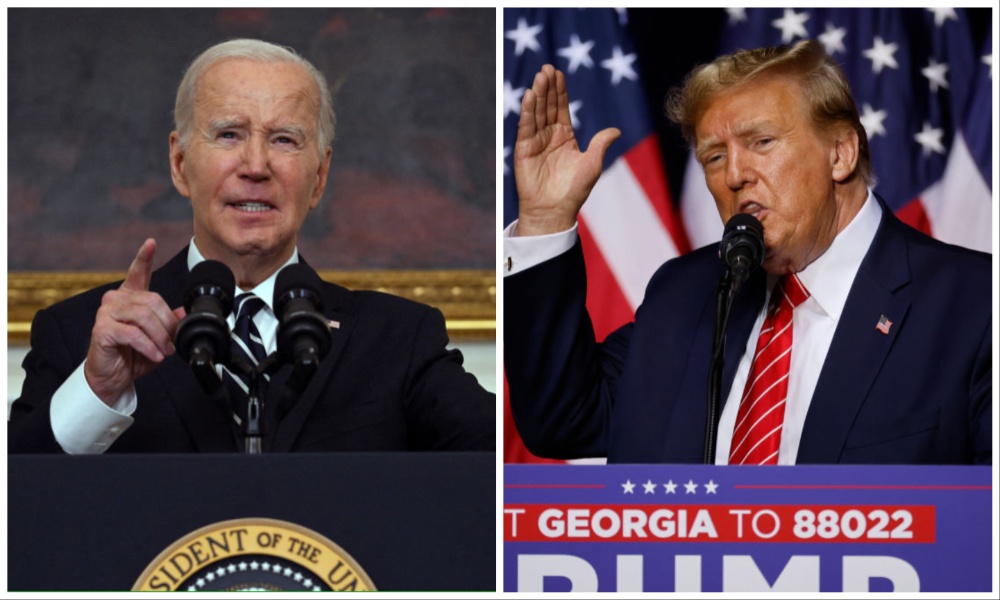State Department Appoints Chief DEI Officer Intent on Dismantling ‘Traditional’ Systems

On Tuesday, Secretary of State Anthony Blinken named Zakiya Car Johnson Chief Diversity, Equity, and Inclusion officer at the State Department.
The position, which Blinken created upon taking office as part of the Biden administration’s commitment to instilling DEI in all facets of government, has remained vacant since Gina Abercrombie-Winstanley resigned in June 2023.
Blinken stated in a press release that “American diplomacy will only be successful if we fully utilize all the talent our nation can offer.” “I created the CDIO position to elevate DEIA in our organization and give the attention it deserves at the senior level. The Department of State made great progress in this area over the last three years but more work is needed. We will continue this mission vigorously because recruiting, nurturing and promoting the best workforce is crucial to our national safety.
Carr Johnson is a member of the U.S. House Committee on Foreign Affairs, as per her LinkedIn profile. According to its website, she also co-founded Black Women Disrupt and is the director of the organization. The group aims to “break paradigms” of poverty, exclusion and inequality of Black communities across the African Diaspora and the Americas. Carr Johnson founded Odara Solutions in Atlanta and served as a senior advisor and director for the State Department’s Race, Ethnicity and Social Inclusion Unit under President Barack Obama.
|
Blinken noted that the diversity expert had a fresh perspective on “how we can build a workforce which reflects America” and was “committed to inclusive leadership.”
Carr Johnson will participate in a webinar on “intersectional feminist” for the Feminist Leadership Project. The State Department official was asked to define feminist leadership. She replied that it is “essential” for her.
She said, “It’s not enough to say that we need representation.” “Feminist Leadership actually takes representation two to three steps further. It is not enough for women to be present. We need to be involved in decision-making, including critical decision-making of traditional systems and how we have always done things. We also need to consider the impact our actions will have on women and society as a whole. “And critical of power dynamics, and how we use it.”
She continued, “There is value attached to my skin, my color, my history, my culture, and my experience as a Black woman.” This is true not only in terms of programming, but also with regard to leadership. How many people like me are in leadership positions and can help shape how policy is made, the way programs are developed, the way we view the world?
Carr Johnson noted “traditional systems” are a result of colonialism and patriarchy. She encouraged women “to analyze those power dynamics in a daily basis” to get a better sense of “what feminist leadership looks like.”
“The culture is misogyny, which has enabled men to act without consequences, and we accept it as normal. She said that to bring about any kind of change, “we have to literally be working to dismantle that traditional structure every time we meet.”
In 2019, the DEI executive also served as an Atlantic Fellow in racial justice. Carr Johnson stated in her biography that “I believe to dismantle anti Black racism, we must eliminate structural barriers, recognise Black communities and Black Women as valuable sources for strength, talent, and ingenuity and invest in them accordingly.”
Blinken, the State Department’s new Secretary of State, has put a lot of emphasis on DEI initiatives. Blinken, Secretary of State, issued a memo in February titled “Modeling DeIA: Gender Identity best practices” to staffers about the danger of “misgendering.” He advised them to avoid terms such as “mother/father,” son/daughter,” or “husband/wife,” which he claimed could send a harmful, exclusionary signal.
In recent months, while the Biden administration continued its embrace of DEI’s positions, corporations and colleges have started to roll back DEI-related policies after the industry exploded in response to George Floyd’s murder in 2020. Since then, a growing number of Americans — including elected Republicans — has criticized the industry’s regressive and toxic focus on race.
The House Oversight Committee Republicans pressed the U.S. Last month, the Equal Employment Opportunity Commission was urged to stop DEI.









No Comments